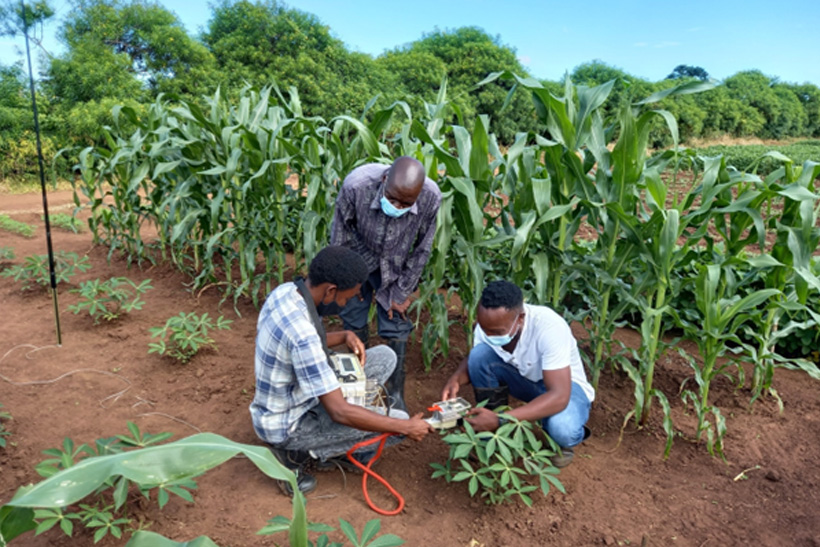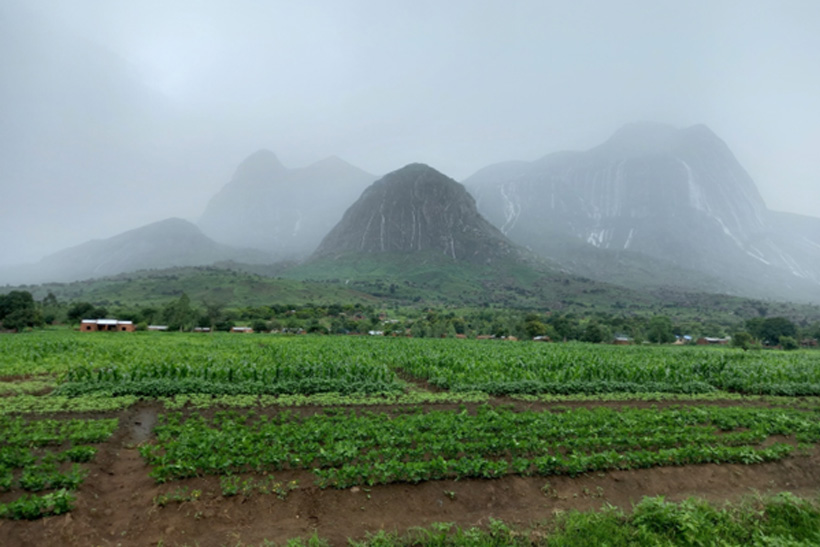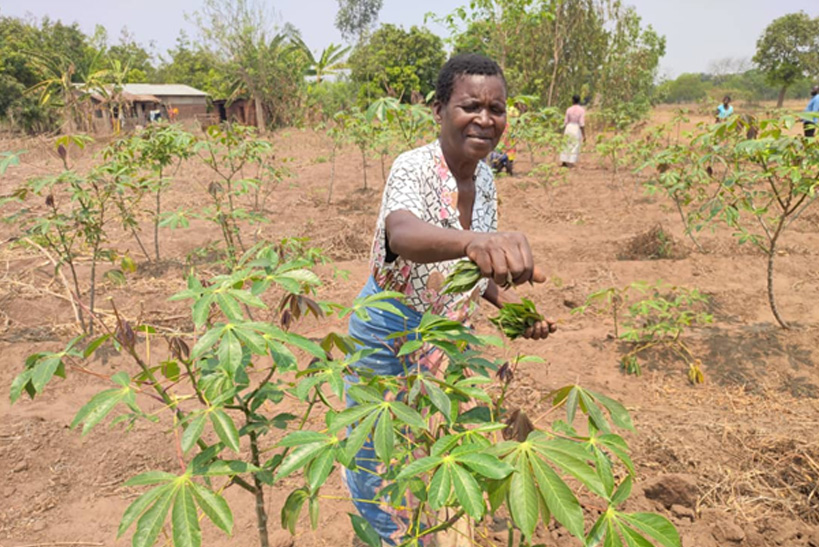RECOUNTING/TRACING THE SUCCESS OF DESIRA PROJECT IN MALAWI
More than 200,000 hectares of land were negatively affected by cyclone Freddy in Malawi in the 2022/23 season. This catastrophic event has resulted in over 5 million people facing persistent food insecurity, according to the IPC Chronic Food Insecurity report. As a response, researchers are spearheading efforts to introduce innovative technologies tailored to assist farmers by introducing new climate-smart technologies that can improve productivity.
As Cynthia Kazembe writes in “The gap between technology awareness and adoption in Sub-Saharan Africa: A literature review for the DeSIRA project”, One technology that has seen high adoption over time by Malawi farmers, is the Sasakawa (One-One) maize planting method with over 60% of farmers practicing and appreciating its impact on yield. Other farming technologies that have been promoted and adopted include manure-making, reduced ridge spacing, irrigation, Conservation Agriculture, and many other technologies proposed by researchers.
With the reduced yield impact caused by climate change in Malawi, the CGIAR organizations, and its partners in Malawi continue to work to identify new technologies that can mitigate the negative impact of climate change.
The 5-year project of DeSIRA (Development Smart Innovation through Research in Agriculture) has seen the co-creation and identification of 47 integrated options with the potential to bolster farmers’ climate change adaptation in Malawi. These cutting-edge technologies include climate-smart maize bean , and sweet potato varieties; climate-smart intercropping systems, and technologies alternatives to organic fertilizer.
With a strong collaboration between partners, the DeSIRA project has CIP, DARS, CIP, IITA, ICRISAT, CIMMYT, IFPRI, ABC-CIAT, ICRAF, World Fish, and The University of Liège (ULiège), coordinating and working together on three outputs of integrated technology options, robust pests and disease management strategies, and innovative post-harvest management technologies.
Regarding the progress of the project, Gbenga Akinwale, who is also the One CGIAR Country Convener, attributes the successes of the project to teamwork and the need for urgency to address the multi-faceted challenges affecting the agricultural and food systems. He expressed these sentiments at a DESIRA review meeting which was held in Lilongwe recently.
“We were able to establish over 500 on-farm and on-station field experiments to evaluate climate smart integrated technologies across major agroecological zones in Malawi. Over the years, we also engaged around 1500 farmers to host and test the on-farm experimentation across the target districts” Said Gbenga.
From the 47 proposed technologies, 17 were proven effective and now await the approval of the Agriculture Technologies Clearing Committee (ATCC) in Malawi. The ATCC is a governmental committee which is responsible for critically examining and approving the release of all technologies including varieties, cultivars, breeds, and management and control practices used in agricultural production.
John Omondi, is a Systems Agronomist working with IITA in Malawi and coordinating some DeSIRA activities. He celebrates the project’s interlinkage with other CGIAR initiatives operating in the country.
“At DeSIRA Malawi, we promote integrated soil fertility management, crop varieties, cropping systems, and configurations, with disease and pests’ management. We are working together with Excellence in Agronomy (EiA)- Solidaridad Soy Use case to design and scale a digital agronomy tool for soybeans that will address planting dates, varieties, and site-specific fertilizer recommendations as a bundled service. In addition to these is the LEG4DEV project, where we assess the efficacy of bioinoculants available in the Malawi market for smallholder farmers and isolate effective indigenous rhizobia stains” Says Omondi
Omondi further explains the role of Sustainable intensification of Mixed farming systems (SI-MFS) in the inclusion of livestock into the maize cropping systems.
“Linking agronomy to livestock closes the farming systems loop, in SI-MFS; after the agronomy and soil health innovations and practices from DeSIRA, EiA, and LEG4DEV, we foster participatory co-designing and co-formulation of viable quality feed options for small ruminants with the smallholder farmers and NARs partners.” Says Omondi
Among other interventions in the project, IITA is evaluating options for intensifying maize-cowpea, and Cassava-cowpea intercropping Systems, evaluating integrated soil fertility and crop management options for sustainable intensification of maize-legume cropping systems-Maize-cowpea intercrop.
It is also tasked to evaluate maize-legume relay options on insect-pest severity and grain yield of legume and maize, strip intercropping options on insect-pest severity, and grain yield of legume, maize, and cassava, among many other portfolios.
Available land for crop farming utilization in Southern Malawi continues to shrink and Rose Maluwa, a smallholder farmer in Mulanje District testifies to the potential of climate-smart technologies. She participated in on-farm Cassava and cowpea intercropping farming system and can no longer let go, for she has seen, how a small piece of land can be utilized to harvest abundantly.
“We have learned a lot under the DeSIRA Project. With the availability of good seeds, I am seeing a lot of my fellow subsistent farmers adopting this new way of farming. I harvest the cassava leaves for relish and use the roots to prepare breakfast as I sell the stem to my friends. While the seasons remain unpredictable, with cowpea, we are assured of proteins and diversification of the cropping systems and our diet/nutrition.” says Rose.
With one year to go on phase one of the project, the Climate Smart technologies are ready to empower farmers in the Malawi agricultural sector. “It’s high time farmers start adopting climate-smart integrated technologies to ensure that the country manages the climate shocks, as it is having climate change issues such as drought and floods.” Senior Deputy Director of the Department of Agricultural Research Services (DARS), David Kamangira said.
He further commends the DeSIRA project’s commitment to improving the country’s resilience in the face of climate-related challenges.
The project, which has greatly benefitted from government’s support, also strengthened capacity within the government, as 43 Department of Agriculture researchers and technicians were trained across the 6 Agricultural research stations in the country. A further 3 district innovation platform systems have been established across three districts to Foster effective interactions and engagement between scientists, farmers, and all the relevant stakeholders in the development and testing of various integrated technology options.
The Project has funding of 6, 315, 790 Euros from the European Union, covering the districts of Mzimba, Chitipa, Karonga, Nkhata Bay, Nkhotakota, Kasungu, Salima, Mulanje, Thyolo and Chiradzulu.
Contributed by Emmanuel Mwale.




No Comments